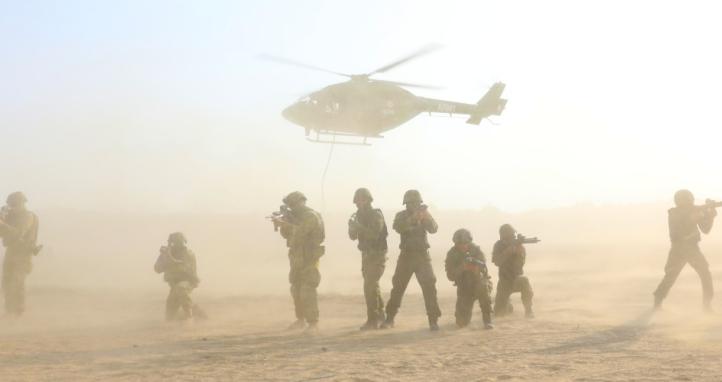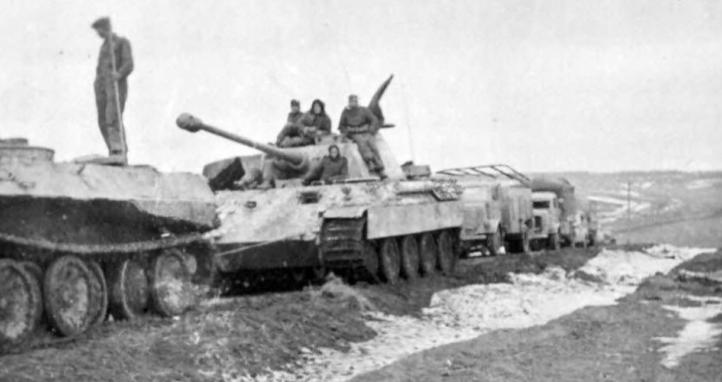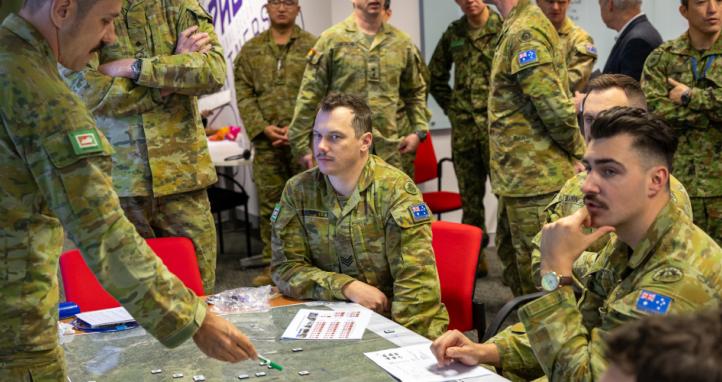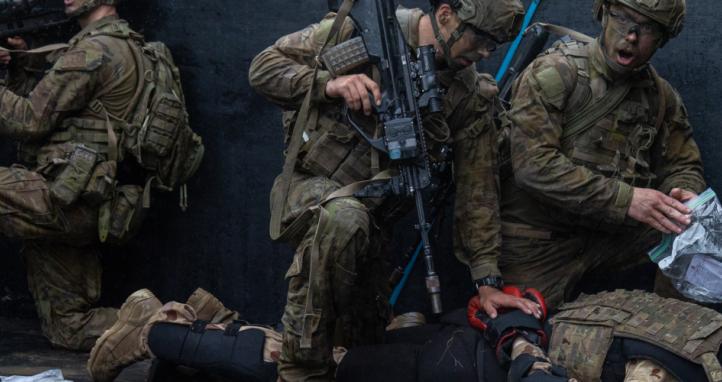Having previously served at the British Jungle Warfare Wing (now Jungle Warfare Division), based in Brunei and now currently serving as the Senior Instructor of the Logistics Officer Training Wing, I was particularly interested in Jungle Training Wing (JTW) Instructor, Nick Korfias’s recent article published on the Cove, The Jungle Book. In his article Nick poses some questions to logisticians, which in this response I attempt to answer.
The Jungle – A Leveller
With a fair likelihood of being accused of committing heresy, I have to disagree with one of the most highly respected authors on jungle operations, LTCOL F Spencer Chapman DSO & Bar, ED (author of The Jungle is Neutral) and state that the jungle is not neutral, it actively conspires against you. As Nick stated in his article “the jungle is the perfect environment for soldiers to go back to the basics.” He hit the nail on the head with this comment. Additionally, in the current climate where some suggest that combat arms are starting to lose their tactical acumen, it could be argued that there is no greater environment than the jungle to enhance or test this notion.
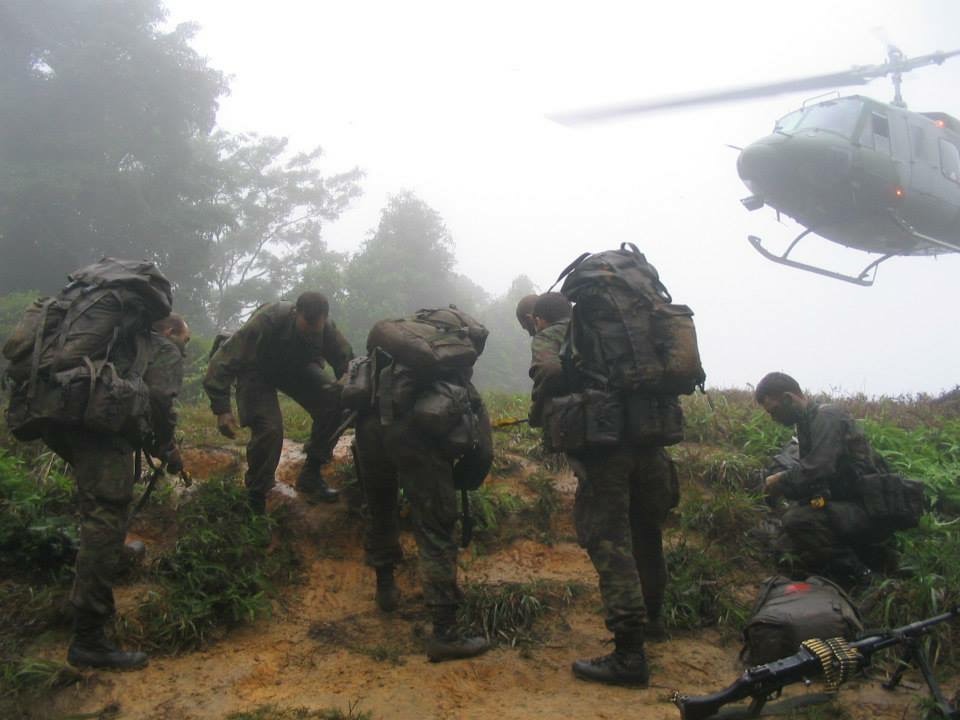
It is often said that jungle operations are a section commander’s war. Obviously there are valid arguments for and against this stance; however, in an environment where you are unlikely to visibly see any of your soldiers, other than the one or two in your immediate vicinity, C3 is undoubtedly far more complex and demanding.
The jungle is an unforgiving environment; it is continually wet and humid, forcing each and every soldier back to the basics of soldiering. It is highly unlikely that you will be able to operate for a protracted period in the jungle if you cannot keep on top of your administration (i.e. wet kit/dry kit regimes), as your body will rapidly degrade. Your weapon system will not function correctly if you do not keep it spotlessly clean and your effectiveness will be severely impacted if you cannot efficiently reduce the amount of kit and equipment that you carry. Due to the three tier canopy in close country, GPS becomes extremely temperamental, forcing the utilisation of basic navigational skills (map, compass and pacing). Even the adjustment of artillery is problematic with the aural method of adjustment often being more effective than conventional methods. Taking all of the above points into consideration, the jungle is a perfect leveller.
Logistics in the Jungle - General
The ability for logisticians to operate effectively within the jungle environment is an intrinsic requirement for all logisticians. That said, this requirement undoubtedly sits firmly with the combat arms integral logisticians. To answer Nick’s question: “should there be a logistics training package for jungle operations,” I would argue not. Instead, the requirement is to conduct jungle training fully utilising logisticians at all times, particularly the combat arm unit’s A1 and A2 echelons. This integration recognises that collective training within a sub-unit is more valuable than training in isolation. Secondly, in line with all other training, logisticians and the supply chain will only be truly tested if the training is conducted over a protracted period of time. Nick’s second question of whether Logistic Instructors should be posted to JTW is another moot point. Much as I would love a posting to JTW, the fundamental requirement is that the arms corps, particularly infanteers and the JTW instructional staff, must have an enhanced understanding of logistics, forecasting, the supply chain and health considerations.
Logistics – Resupply
As Nick describes in his article, there are only several viable methods of resupply in close country - on your back, by air and the utilisation of waterways. To effectively use waterways as a Ground Line of Communication (GLoC) is extremely manpower intensive and, as he rightly points out, to fully utilise them you must control them. Riverine operations are extremely vulnerable to interdiction and ambush, with all logistic elements likely to become high value targets.
To rely solely on resupply operations by the use of road heads or waterways undoubtedly constrains force elements from pushing out and dominating the ground. The use of resupply by air is far more effective, preventing the requirement of combat teams / Platoons (CT/Pls) from continually having to move to resupply RV locations.
Historically resupply by airdrop has proved to be extremely complex, with dropped stores being difficult to locate or becoming hung up and irretrievable high in the canopy. Resupply by helicopters is by far the most effective means of resupply. As Nick stated, to cut a winch hole can be extremely time consuming, often taking several hours of hard work to achieve. That said, resupply by helo allows the force element (FE) to be resupplied within their area of operations, without the requirement to potentially lose ground or, significantly, create targetable patterns.
Health Considerations
Another consideration that should not be underestimated is the impacts to health in the jungle environment. Regardless of how fit and acclimatised your soldiers are, due to the weight that they will have to carry and being constantly wet, their bodies will start to degrade. Heat illness is a significant threat that cannot be fully mitigated. This, coupled with the myriad of tropical diseases that can be contracted in the jungle, again makes the requirement not only for CT’s to have attached medics, but for the whole FE to have an enhanced understanding of preventative medicine measures and first aid training.
Summary
The benefits of jungle/close country training cannot be underestimated. The environment and terrain provides no hiding places, with a high level of tactical acumen being required from all arms to operate effectively. To be an effective force, both combat arms and supporting arms must train together at the same level, not separately. And finally, as Nick stated in his opening gambit, although the focus of future operations is swaying towards operating within megacities, the ability to operate effectively within jungle/close country should not be underestimated. The past is littered with examples of where the enemy’s ability to operate in the jungle has been miscalculated; the fall of Singapore and the French defeat at Dien Bien Phu in French Indochina, being far from the only examples. Australia’s near region is home to 15% of the world’s tropical rainforests. Is underestimating the value of jungle training therefore a risk worth taking?






